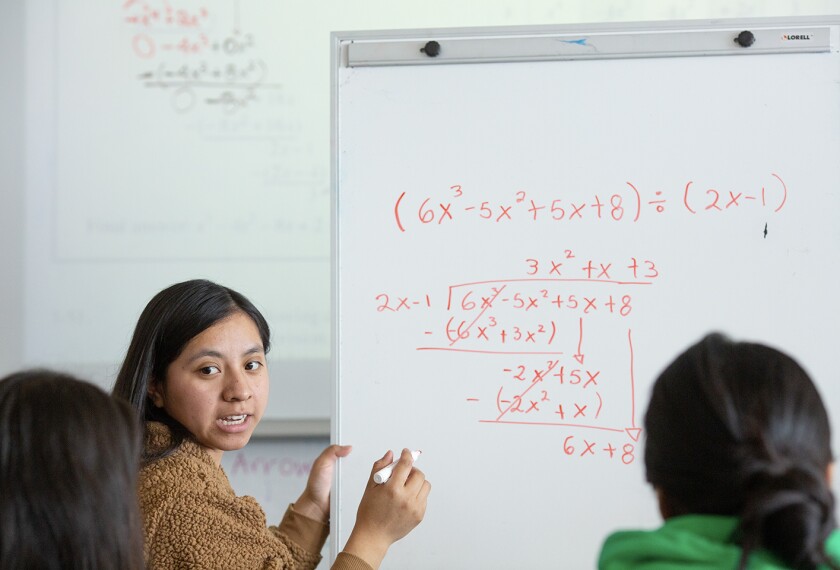An economist by training, David Figlio often conducts research on the cost effectiveness of education legislation and its impact on the students targeted by the new laws.
But, after studying a Florida reading retention policy, Figlio, an economics and education professor and provost at the University of Rochester, and his research team found that policies meant to target individual students can also have unexpected benefits for those students’ younger siblings.
“Just Read, Florida!” initiative, which was enacted in 2002. It requires students to reach a Level Two benchmark on the statewide reading test in order to start 4rth grade or they have to repeat 3rd grade. Once a student is retained, schools must provide extra support and resources to get them up to grade level by the end of their repeated year.
While normally a critic of retention policies, Figlio said he thinks an important aspect of Florida’s policy is the extra resources it provides for targeted students, such as being assigned to high-performing teachers, summer camp, individual reading plans, and intensive instruction.
“I actually tend to be pretty negative on the idea of just retaining students,” Figlio said. “I view this policy itself as more of investing targeted resources into struggling students as measured by low standardized test performance.”
In studying the students who were affected by this legislation and their siblings, the team found that the younger siblings improved their own reading skills by about one-third as much as their older brothers or sisters did, even though they were not themselves retained or targeted for extra help.
Big implications for education research?
Figlio said this has huge implications for education research in general.
“The biggest implication is that benefit-cost analyses of policies, if we’re looking at the effects only on the focal kid, are going to be understated,” Figlio said.
Although most siblings did get some spillover effects, Figlio and his team said the benefits were more pronounced for three specific groups of students: male students, students with learning disabilities, and those from families who recently immigrated to the United States.
While younger sisters did not reap many spillover effects, younger brothers did. Figlio said this may be because research has shown that males tend to be more sensitive to their environment than females are, meaning that boys were more likely to be affected by their older siblings’ retention than girls were.
“There have been a large number of studies of late showing that ... boys are just more sensitive to the good and the bad than girls are,” Figlio said. “Girls tend to be more resilient than the boys on average.”
For special education students, the larger spillover effect may be because parents of special education students are typically more involved in their students’ education, by nature of their children’s added special needs, and they will as a result tend to be more involved in all their children’s educations. Also, the retained student did not have to be in special education in order for the younger sibling to accrue some spillover effects. If either child was in special education, the younger sibling would get spillover effects.
“Parents of special needs students are already more tapped into their kid’s educational environment almost by definition than parents without special needs kids,” Figlio explained. “It would make sense ... [that] parental awareness and parental involvement is one of the reasons we have spillover effects within the family.”
Likewise, he added, “there’s a large literature that says recent immigrant families tend to be more involved in their kids’ schooling,” Figlio said. “Again, if this is a parental involvement story, then it stands to reason that recent immigrant families would be especially engaged in that regard.”
Figlio hopes that other researchers will take a page out of his book and observe the whole family when it comes to education policy analysis. By only focusing on the focal child, he believes the effects, both negative and positive, of any given policy, can be understated.
“I would like to see scholars ... look at siblings to try to start studying not only the effects of the individual kid who’s the focal kid but also the effects on siblings because I want to know, ‘Was this [Figlio’s research findings] dumb luck? Was this a fluke?’ or is this something that gets replicated over and over again,” he said.





